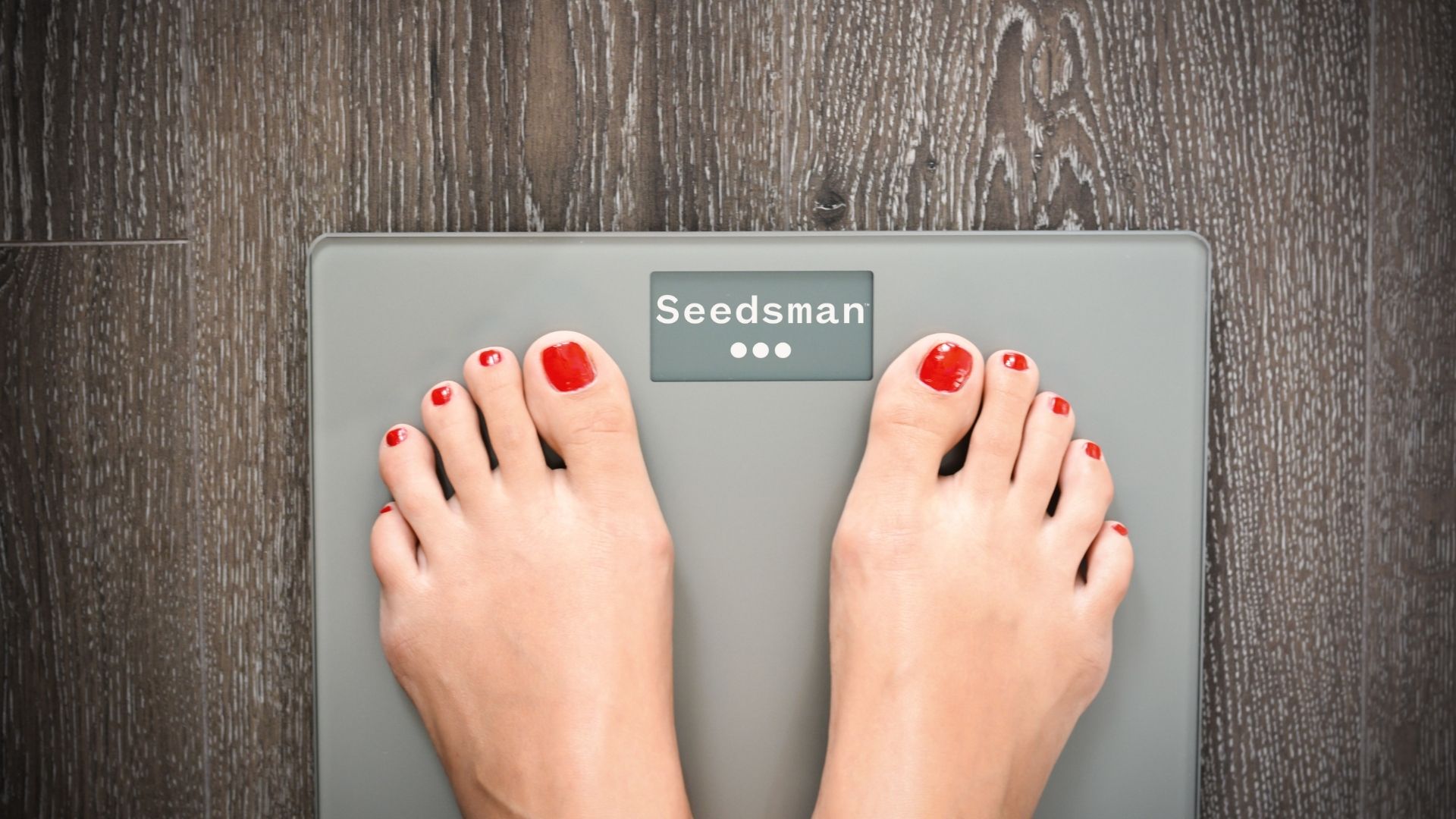
Does THCV Really Help You Lose Weight?
Minor cannabinoids are starting to have a major impact.
Among those catching the attention of researchers is tetrahydrocannabivarin (THCV), which is similar in structure to the more illustrious THC yet produces radically different effects. And while studies into the beneficial effects of THCV are still relatively thin on the ground, the compound is fast gaining a reputation as an appetite suppressant.
What Does THCV Do?
It’s been a year since we published a detailed blog post about the effects of THCV, and in the intervening period, we’ve seen a wave of articles appear online hailing the cannabinoid as “diet weed”. This moniker refers to how THCV inhibits the body’s cannabinoid 1 (CB1) receptors, thereby suppressing the appetite.
As most pot lovers know, THC stimulates these receptors to produce a range of effects, with the munchies being one of these. Previous research has focused on inhibiting CB1 to combat obesity. While some pharmaceutical CB1 blockers have proven effective at reducing food intake, their tendency to induce depression renders them unsuitable for use.

Happily, however, studies have shown that THCV suppresses the appetite without causing any nasty side effects. For instance, last year’s paper indicated that the compound reduces CB1 signalling “with unusually high potency,” yet “seems to be free of adverse events associated with CB1 inverse agonists.”[i]
Another study from 2016 showed that a single ten-milligram dose of the cannabinoid alters connectivity patterns in brain regions that are strongly associated with compulsive eating and obesity.[ii] Earlier research on mice revealed that isolated THCV triggers a reduction in eating, yet demonstrated that this effect is wiped out when THC is added. Curiously, however, THCV’s appetite-suppressing power was restored by adding CBD.[iii]
Therefore, the study authors conclude that THCV may prove to be an effective diet aid when taken on its own or in combination with CBD, but not with THC.
What Else Can THCV Help With?
As we explained in our previous blog on THCV, there’s a fair amount of evidence suggesting that the cannabinoid has anticonvulsive properties and may help with epilepsy. This claim was first made back in 2010 when researchers showed that tiny doses of the compound are sufficient to suppress seizures in mice, yet no significant studies on human patients have been conducted.

More recently, though, scientists have begun to look at the potential of THCV to prevent inflammation in COVID-19 patients. Inflammation is a significant driver of severe symptoms following infection with the virus, yet a study from last year indicates that the cannabinoid attenuates the release of pro-inflammatory proteins.
Results showed that an extract containing a mix of CBD, CBG and THCV was more effective at limiting inflammation lung cells than pure CBD. Intriguingly, this combination of cannabinoids proved to be more beneficial than whole plant extracts, implying that THCV may be a major driver of this unexpected superpower.[iv]
Where To Find THCV
THCV occurs in tiny amounts in most cannabis cultivars, although it tends to be more prevalent in Sativa strains from tropical regions in Africa. Due to growing interest in the compound, Seedsman has created a strain called Diet Durban THCV 1:1.
The THCV: THC ratio is 1:1 with a total of approximately 14% of those two cannabinoids combined along with around 2% CBD. Together they produce a highly lucid, stimulating, cerebral effect that also acts as an appetite suppressant.
[i] Straiker A, Wilson S, Corey W, Dvorakova M, Bosquez T, Tracey J, Wilkowski C, Ho K, Wager-Miller J, Mackie K. An evaluation of understudied phytocannabinoids and their effects in two neuronal models. Molecules. 2021 Jan;26(17):5352. – https://www.mdpi.com/1420-3049/26/17/5352
[ii] Rzepa E, Tudge L, McCabe C. The CB1 neutral antagonist tetrahydrocannabivarin reduces default mode network and increases executive control network resting state functional connectivity in healthy volunteers. International Journal of Neuropsychopharmacology. 2016 Feb 1;19(2):pyv092. – https://academic.oup.com/ijnp/article/19/2/pyv092/2910095?login=true
[iii] Riedel G, Fadda P, McKillop‐Smith S, Pertwee RG, Platt B, Robinson L. Synthetic and plant‐derived cannabinoid receptor antagonists show hypophagic properties in fasted and non‐fasted mice. British journal of pharmacology. 2009 Apr;156(7):1154-66. – https://bpspubs.onlinelibrary.wiley.com/doi/full/10.1111/j.1476-5381.2008.00107.x
[iv] Anil, S.M., Shalev, N., Vinayaka, A.C. et al. Cannabis compounds exhibit anti-inflammatory activity in vitro in COVID-19-related inflammation in lung epithelial cells and pro-inflammatory activity in macrophages. Sci Rep 11, 1462 (2021). https://doi.org/10.1038/s41598-021-81049-2
Cultivation information, and media is given for those of our clients who live in countries where cannabis cultivation is decriminalised or legal, or to those that operate within a licensed model. We encourage all readers to be aware of their local laws and to ensure they do not break them.
Source link












